AudioCulture
The noisy library of New Zealand music
Te pātaka korihi o ngā puoro o Aotearoa
Isaac Aesili
A classically trained trumpeter, percussionist, producer, DJ, and sometimes vocalist, Aesili has spent time on stage and in the studio with Opensouls, Ōtautahi Allstars, Shapeshifter, The Recloose Live Band, TrinityRoots, Eru Dangerspiel, House of Shem, Latinaotearoa, Lord Echo, Chaos In The CBD, and numerous other acts.
Outside of these long-standing community music efforts, Aesili has also released music under his own name, collaborated with Rachel Fraser as Sorceress (formerly Funkommunity), and recorded with his brother Mark McNeill as Karlmarx. In 2024 Aesili lives in Bangkok, Thailand, where he has been studying towards a PhD at Mahidol University’s Institute of Human Rights and Peace Studies while continuing to DJ, play, and produce music on his own time and terms.
Origins
Born in Christchurch in 1979, Aesili was adopted as a baby and raised by a Māori father who worked as a high school teacher and a Pākehā mother who gave him an intrinsic sense of belonging and nurtured his love of classical, jazz, funk, pop and soul. From as far back as he can remember, the house was full of music. “We all tried different instruments when we were young,” he told the NZ Herald in 2012. “My mum played ukulele and keyboards, and my dad plays trombone and guitar.”
When Aesili turned 10, his parents surprised him with a trumpet. “According to my dad, the first time I picked it up, I blew a clean G note,” he says, laughing. His father encouraged him to take classical lessons and join the school jazz band after being awarded a scholarship to study at St Andrew’s College. “I loved playing jazz because of the emphasis on rhythm, but I was very much grounded in the classical tradition,” he says.
Outside of playing jazz and classical, Aesili spent his teens falling in love with the sounds of late 20th century RnB, neo-soul and hip-hop. If he wasn’t taping Mary J Blige and Faith Evans songs off the popular iwi radio station Tahu FM, he was listening to mixtapes that his high school friend Chris Cox (now better known as Frank Booker) had recorded for him. “Chris had turntables at home and was already learning to DJ,” says Aesili. “He introduced me to Pharcyde, Digable Planets, De La Soul, and the acid jazz movement. I remember him giving me a Stevie Wonder mixtape.”
Solaa
At age 17, Aesili left home and enrolled at Canterbury University. “I’d been encouraged to pursue the path of a classical musician who can play jazz, but I wanted to study politics,” he says. There, he met a group of young jazz musicians using improvisation to explore the possibilities of hip-hop, broken beat, funk, soul, R&B, and Latin music. “They were the original members of Solaa. That was my first band.”
Fittingly, when Solaa recruited Aesili, they recruited Cox as well. Cox began spinning soulful beats before, during, and after the band’s live sets. Not long after, Aesili started collecting records, learning to DJ, and hosting a regular show on the Christchurch student radio station RDU 98.5FM. Through Solaa and RDU, Aesili connected with local musical and cultural trailblazers of the era, such as Pacific Underground, Beats & Pieces, Shapeshifter, and Sheelahroc. “It was a blessing to start to connect with all of these different crews through Solaa and see how broad the music was,” he says. “Christchurch was a very fertile place for talent.”
When he turned 20 in 1999, Aesili’s parents encouraged him to finally meet his birth mother, who told him that his birth father was from Guyana in South America. “Mixed identities have been a theme going through my life,” he says. Thinking back, he realised that growing up as an adoptee equipped him with the skills to excel at being able to fit into different cultural spaces. “The fear of abandonment and reflection adoptees often face comes with the strength of being able to read people and adapt to different social situations,” he says. “I became a chameleon and lost myself at times, but I made beautiful friendships.”
By 2001, the members of Solaa were on the verge of going their separate ways, so Aesili relocated to Auckland to do his postgraduate university studies in politics. As they were considering disbanding, a benefactor approached the group and offered to fund them to make recordings. Over the following years, Isaac and Solaa keyboardist Dave Wright began to learn the basics of audio engineering and production to help transform their stage-tested songs into the group’s first and only album, Steps In Time (2006). Emboldened, they continued to play shows around New Zealand and Australia along the way.
Khuja Lounge, Sugarlicks & Opensouls
Alongside his studies and efforts in Solaa, Aesili picked up a gig as a resident trumpeter and percussionist at Khuja Lounge in the inner city. He DJed at other nightclubs, such as Cause Celebre. At Khuja Lounge, he began playing in recording sessions for one of the original owners, Gareth Farry and his boutique agency, label and production house, Sugarlicks.
Specialising in electronic soul music with a Pacific yet global flavour, Sugarlicks oversaw releases from Brother J, One Million Dollars, Solaa, Jah’licious, Manuel Bundy and others, many of whom worked in the studio with Gareth’s brother Lukas. “Khuja and Sugarlicks worked together well as a music venue and a record label,” Aesili said. “They were melting pots and places where we really celebrated ethnic diversity in Auckland. Sugarlicks was an integral part of the Pacific soul music that was emerging at the time.”
In 2002, Gareth and his business partners sold Khuja Lounge to the event producer/artist manager Arani Cuthbert, who promptly hired Aesili as the venue’s music director. “I could communicate well, and I was a musician and a DJ, so she saw potential in me,” he says. Around the same time, he scored a gig DJing at Cause Celebre after a live hip-hop band called 5th Floor. That year, 5th Floor transformed into Opensouls, and Aesili joined the group at their invitation. “I just loved it. They reminded me of the vibe from Solaa, so I felt right at home. They were all really talented and driven. I seemed to fit in, and the music sounded great, so we just went from there.”
As Solaa approached the finish line for their Steps In Time album, Aesili began urging Opensouls to record an album. “I wasn’t the leader, but I could see the potential in the songs and was happy to be the trumpet player,” he says. “The drummer, Julien Dyne, was also starting to produce his own music, so I collaborated with him towards his Phantom Limb EP. You could see that the branches of our musical tree were already starting to expand outwards.”
In 2005, Aesili applied and was accepted to attend the storied Red Bull Music Academy in Seattle. After learning from famous guest lecturers such as Larry Heard, Questlove, Arabian Prince, DBridge, Theo Parrish, Hank Shocklee, DJ Harvey, and Steely & Clevie, Aesili felt encouraged to begin recording and performing his own solo material. The following year, Opensouls released their debut album, Kaleidoscope.
The Recloose Live Band
Through Opensouls and Khuja, Aesili came into the orbit of the then-Wellington-based Detroit electronic music producer and DJ Matthew Chicoine, aka Recloose, who invited him to join his live performance project, The Recloose Live Band. “Recloose took me in another direction,” says Aesili. “His music taste was different, and he really showed us what house and techno were about.”
In 2007, Aesili played with The Recloose Live Band on their live album Backwards & Sideways, and recorded for Recloose’s Fingertip Records and the Japanese label Octave Lab. During the late 2000s, he began to “stretch himself thin” between the different musical projects he was involved in. “I loved the musical families I’d found and wanted them to continue,” he says. “There would be times when I played three to five gigs over several days in different parts of the country because I wanted to be there for everybody.”
In the late 2000s, Aesili was able to sustain his prolific work rate, playing and recording with Sugarlicks, Solaa, Opensouls, The Recloose Live Band, Thisinformation (his duo with Chris Cox aka Frank Booker), Soane, Shapeshifter, Eru Dangerspiel, and others. However, it came at a cost. “I was always the happy, smiley guy, but eventually, there was a pivotal point in my story where that wasn’t sustainable,” he says. We’ll come back to that moment later on.
Eye See
During those years, many of the members of Opensouls and Solaa began to release solo albums or launch new projects. “We all ended up with a mixture of production and studio skills through working on our band albums and solo albums,” says Aesili. “Being a full-time musician in New Zealand isn’t easy, so we were all trying to play on or with as many projects as possible. We were doing our own things, but we were all helping each other as well.”
As a result, during the late 2000s and 2010s, he recorded trumpet, percussion, and backing vocals parts for a dizzying number of bands and solo artists, including Shapeshifter, Anika Moa, Crowded House, Wild Bill Ricketts, Home Brew, Myele Manzanza, Christoph El Truento, @Peace, Bulletproof, Julien Dyne, and Avantdale Bowling Club.
In 2009, Aesili was awarded funding from Creative New Zealand to record and release his debut solo album, Eye See, through his own label, Eye See Recordings. Featuring collaborations with the vocalists Aaradhna, Deva Mahal, Rosita Vai, Mara TK, and Rachel Fraser, Eye See paid homage to the deep love of R&B and neo-soul Isaac developed during his teenage years. On release, the NZ Herald awarded it four stars and described Aesili as “New Zealand’s answer to Stevie Wonder”.
Fittingly, several years later, his single ‘With You In My Bed’ featuring Aaradhna was licensed for inclusion on 15 different lounge, downtempo, and soft R&B compilation albums overseas. However, despite ‘With You In My Bed’s success, Eye Spy’s real eureka moment was the connection it solidified between Aesili and Rachel Fraser. Having met Fraser through The Recloose Live Band, Aesili was blown away by her throwback musical flavours and, as he puts it, “Cryptic, mysterious and haunting lyrics.” After recording two songs together for Eye See, ‘Media’ and ‘I’m All In’, they realised they needed to go all-in on working together.
Funkommunity
In 2011, New Zealand’s Frequency Media Group Ltd. and Germany’s Melting Pot Music released Chequered Thoughts, Aesili and Fraser’s first album together under the group name Funkommunity. Interestingly, the German release came about as a result of another record Isaac had released with Melting Pot Music that year, The Karlmarx Project, a sci-fi electronica album he recorded with his younger brother Mark McNeill. “Chequered Thoughts was one of those albums where I felt like I wasn’t working,” says Aesili. “It was like the music was making itself.”
After Chequered Thoughts was released, prestigious US music website Okayplayer described the album as “refreshing, to say the least,” before noting, “It feels good to hear something familiar, but executed so well that it sounds new.”
In 2012, Funkommunity toured Europe and Japan for the first time. “I was always quite intent on us getting overseas,” says Aesili. There was only so much we could do in New Zealand, and we were getting a reception overseas that seemed to indicate we should go there. I was also caught up in what Fat Freddy’s Drop and Electric Wire Hustle were doing offshore.” During these years, he juggled studio sessions and performances with DJing, which allowed him to self-finance his musical projects.
Latinaotearoa
While Funkommunity were building their profile in Europe, Aesili began playing percussion and handling production duties with fellow Aucklanders Bobby Brazuka and Jennifer Zea’s Latinaotearoa group. With Zea on vocals, Brazuka DJing hip-hop, jazz, soul, Latin funk and Brazilian music, and Aesili playing live percussion, they tapped into the spirit of improvised live collaboration that partially defined the Khuja Lounge era.
In 2013, Aesili, Brazuka and Zea took Latinaotearoa into the studio. They worked with a cast of friends, including percussionist Kurt Dyer and vocalists Jah Red Lion and Anna Coddington, to record their first album, Sonido De Latinaotearoa, released through Brazuka’s Mucho Aroha Music. Several years later, they travelled to Brazil to demo a second album, Influences Et Collabis (2018).
Sorceress, Lord Echo, Chaos In The CBD
By 2014, Funkommunity had rebranded themselves as Sorceress and were preparing to release their second album, Dose, through the respected New York DJ/producer Nickodemus’s Wonderwheel Recordings label. Having continued to tour Europe on a yearly basis, they’d expanded into a live line-up that included guitarist Dan Ryland, bassist Marika Hodgson and drummer Tom Broome. That year, NZ Musician’s Anna Glowacz described Dose as “Timeless as well as being wholly contemporary and innovative.”
During the mid-2010s, Aesili also began playing with Michael August, aka Mike Fab, in his Lord Echo live band, which allowed him to explore his interests in soul-reggae, disco, boogie, and afro-funk. Around a similar time, he connected with London-based New Zealand deep house producer/DJ brother duo Chaos In The CBD and began recording trumpet parts for their music.
Beneath The Surface
In 2016, Sorceress embarked on the most successful European tour they had played yet, culminating in a celebrated performance at Glastonbury Festival. “Put it this way, we made a profit,” Aesili says, with a laugh. Off the back of those shows, they were offered a record deal with independent American label Tru Thoughts. On paper, everything was coming together. However, as I alluded to earlier, the gap between the smile Aesili wore on his face and the feelings he felt inside was becoming rapidly unsustainable. “My life was reaching a peak, but underneath, I had this wave of sadness,” he says.
Thinking back eight years, Aesili now understands that what he was experiencing was burnout. “I wasn’t aware of the fact that what I was doing was unsustainable,” he reflects. Just as New Zealand was entering the summer festival season, he found himself feeling anxious, depressed, and withdrawn. I’d burned through my reserves and the warehouse that stored the reserves,” he says. “I had nothing more, and I was just descending.”
Concerned about his well-being, his family moved him back down to Christchurch to rest and regroup. “It was almost like I woke up, and I felt like my whole previous life, all of the 37 years of it, had been a dream,” he said. As he began to find a way out of his depression, he realised he wasn’t going to be able to heal at home. Having completed a CELTA teaching English as a foreign language qualification several years earlier, he figured he could use it to work overseas. “I wanted to get out of there, mentally and physically, so I decided to travel,” he says.
Initially, Aesili planned to travel through Southeast Asia to London before flying to Guyana to explore his birth father’s heritage. His first flight took him to Phuket. A week after he purchased his ticket, he was offered a job teaching English at a high school in Thailand. “I was like, that’s my sign,” he said. “I sold everything, packed one bag and moved. I actually arrived six years ago today, would you believe?”
At the time, Aesili had sworn never to play or make music again. “I wasn’t even listening to it, and I didn’t even bring my trumpet with me,” he admitted. “This was the level of disdain I had for my former career. If it hadn’t been for my brother Mark urging me, I wouldn’t have even brought my laptop with me.”
Thailand
In Thailand, Aesili found the space to rest and be gentle with himself. “Living here ended up being very healing for me,” he says. Thanks to the encouragement of one of the teachers he was working with, he started listening to music again and was floored by the sounds of modern R&B and neo-soul. “Teaching was really good for me,” Aesili says. “There’s just so much positive energy amongst youth and children. The first year was a bit of a struggle and a culture shock for sure, but I realised quickly that I wanted to stay here.”
Once he was sure he was settled, he signed up to study towards a PhD with the thesis title “Indigenisation of the Capabilities, Social Justice and Self-Determination Nexus for Tapuika in Aotearoa”. “I’m studying my iwi (Tapuika), determination, rangatiratanga and social justice. I’m indigenising social justice and using a theory called the capability approach to try and map out ways that maybe Tapuika can start to actualise and realise their rangatiratanga and social justice.”
After recovering his musical mojo, Aesili became hungry to create again. This time, it was healing, especially after it allowed him to reconnect with friends back home in New Zealand, including Ladi6 and Rachel Fraser. In 2020, he released his second solo album, Hidden Truths, through New York’s Bastard Jazz Recordings. Infused with elements of soul, funk, jazz, afro and Latin music styles, and samples recorded in local temples and bustling markets, recording the album allowed Isaac to pour all of his past experiences into a contemporary take on R&B, hip-hop and electronica.
Four years on, Aesili is happy to approach music at his own pace alongside work, studies, and the occasional DJ gig. “The process of healing I’ve been through has allowed me to free myself from a lot of my past insecurities,” he says. “It’s made me more comfortable, which allows me to stop thinking and just play. A large part of my upbringing was about just playing and feeling music. I feel a sense of fullness and completeness now.”
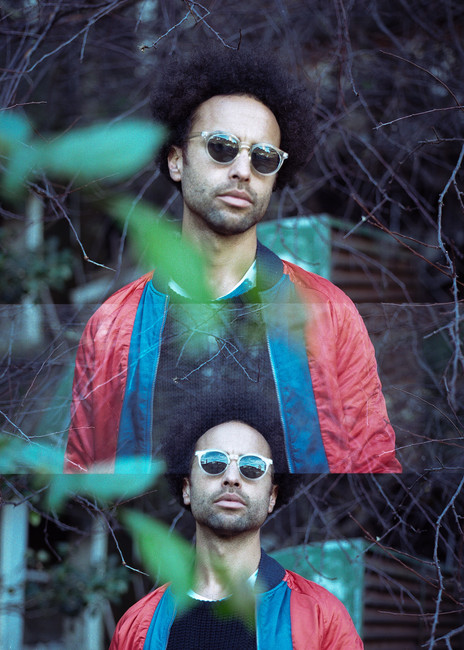
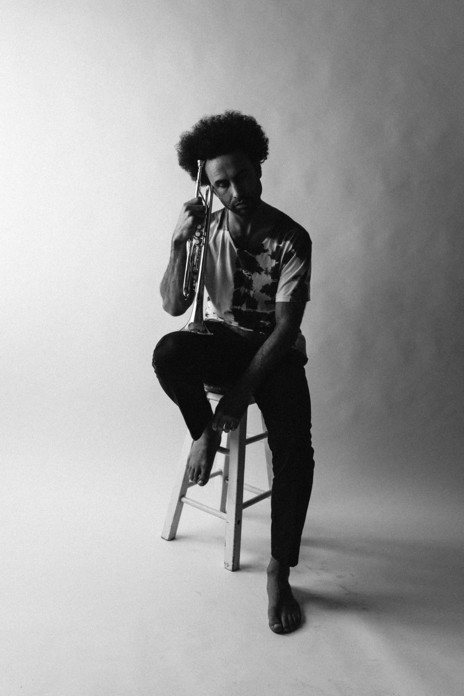
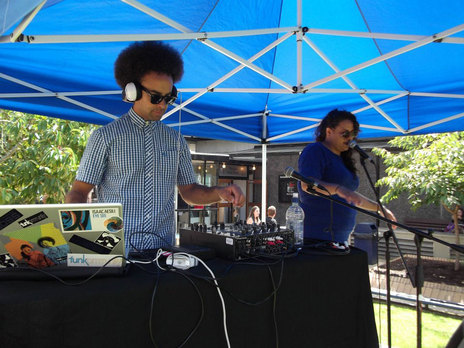
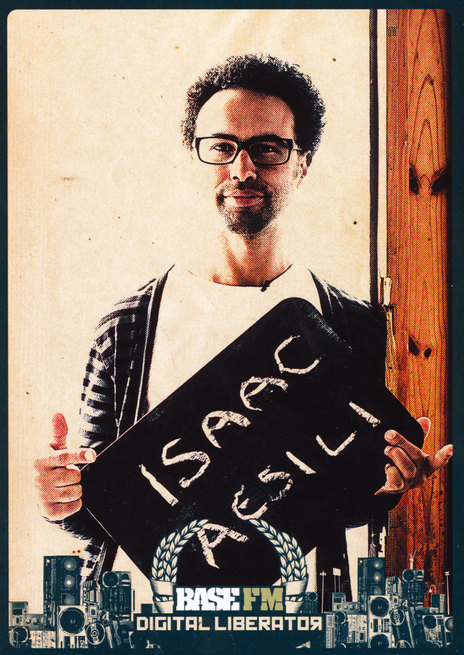
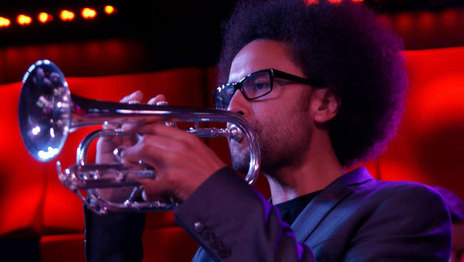
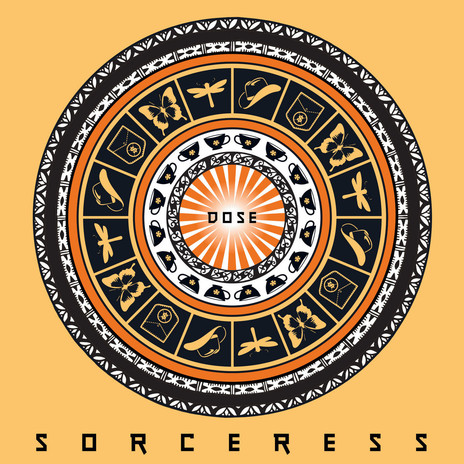
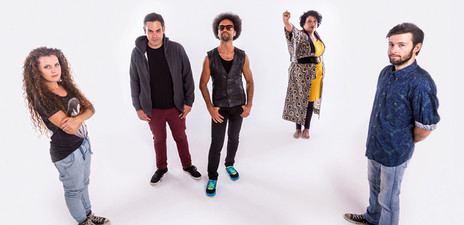
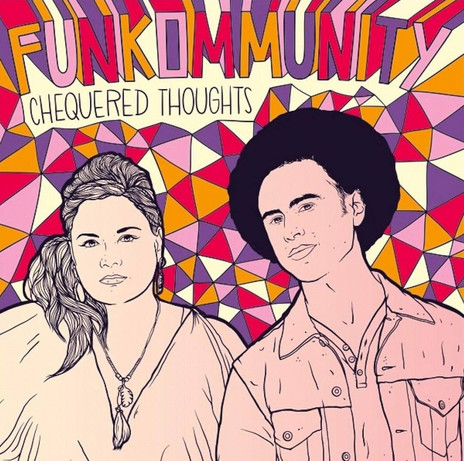
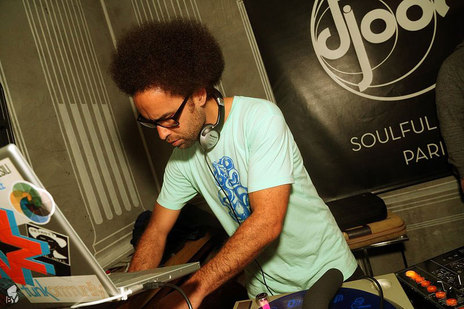
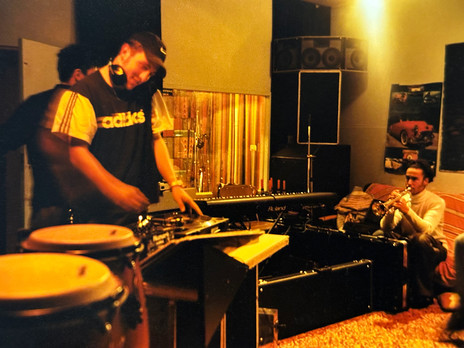
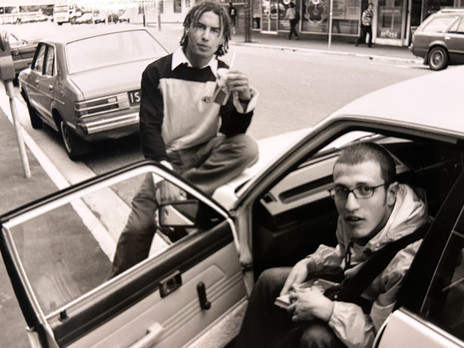
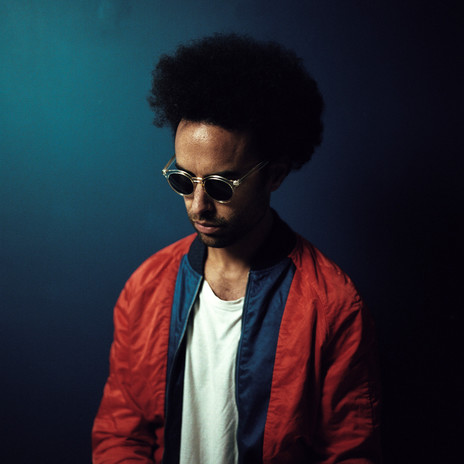
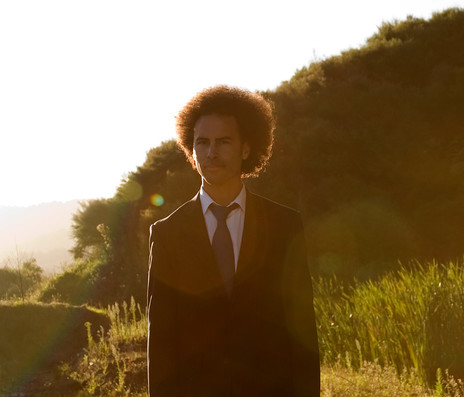
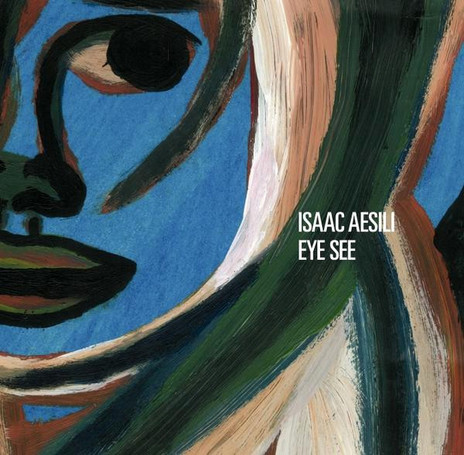
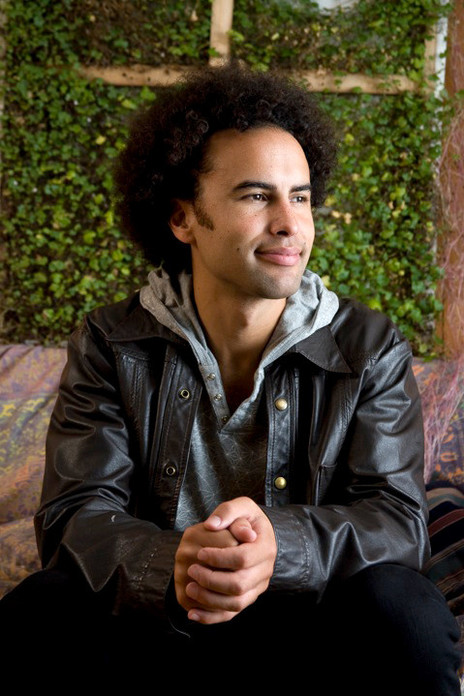
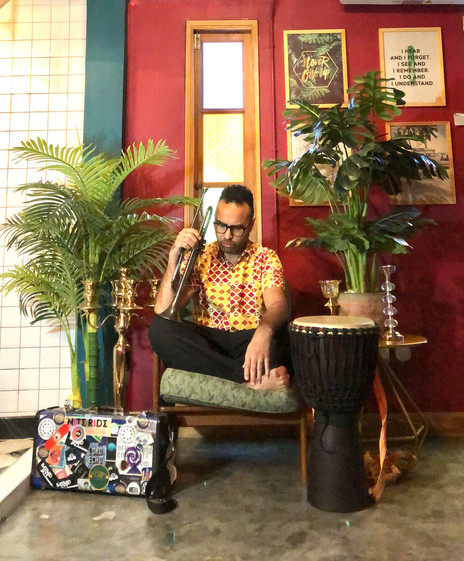
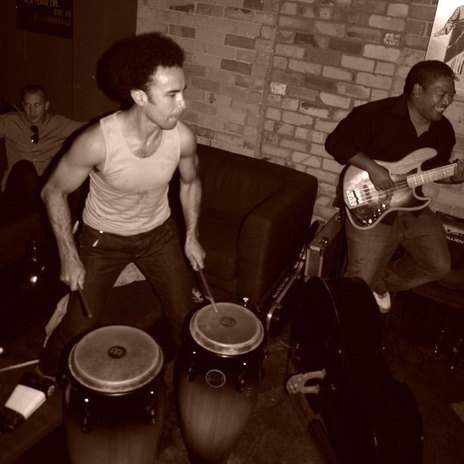
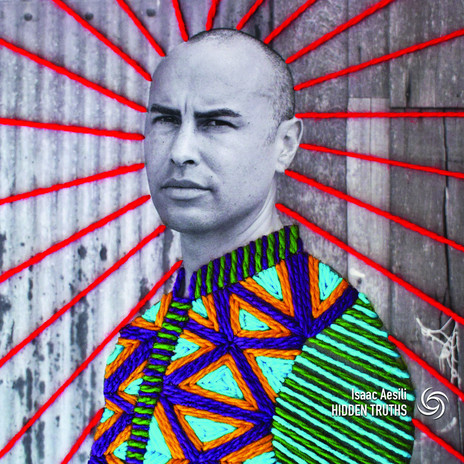
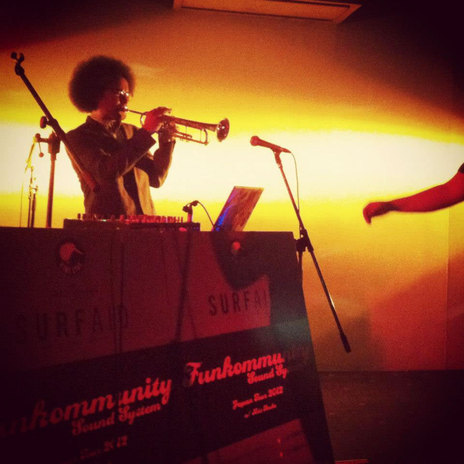
Soulab Records
Melting Pot Music
Wonderful Noise
Eye See Records
Member of Solaa, Opensouls, The Recloose Live Band, Funkommunity, Karlmarx.
Visit our sister site
NZ On ScreenMade with funding from
NZ On Air







